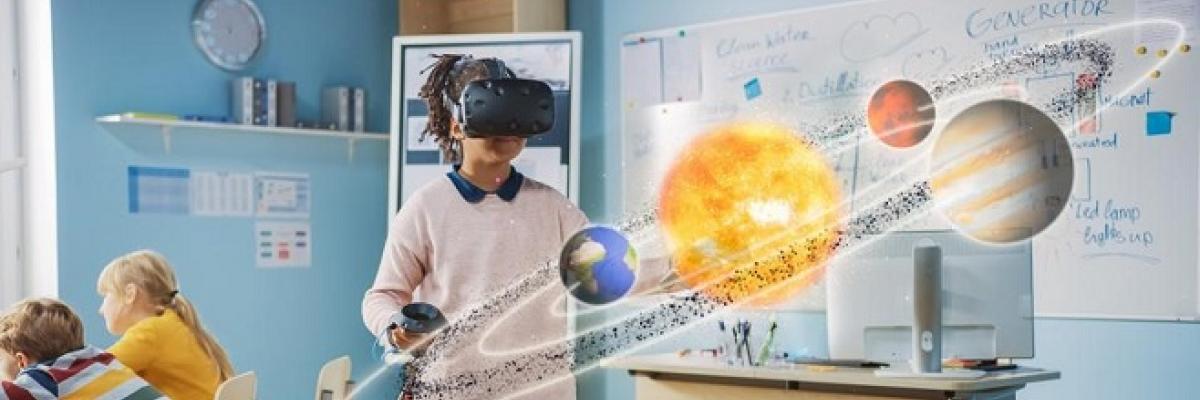Research Seminar: Virtual Reality (VR). Its role in Education
- Date: Wed, 15 Sep 2021, 4:00 pm - 5:00 pm
- Location: Online: Registration Required
- Cost: Free
- More information: Zoom registration link
- Contact: Yvonne Philp Senior Administrator, School of Education
- Email: yvonne.philp@adelaide.edu.au
- Associate Professor Edward Palmer School of Education Stephen Cole the Elder Fellow, Faculty of Arts Chair, Higher Education Research Group of Adelaide (HERGA) Apple Teacher The University of Adelaide


Associate Professor Edward Palmer, School of Education, University of Adelaide, presenting:
Virtual Reality (VR) comes in multiple formats.The most common is 360-degree VR where a user wearing a headset can look around a three-dimensional space. In this environment, the user is essentially watching a pre-recorded video and any interactions with the environment are through basic controls. The most sophisticated form is fully Immersive Virtual Reality (IVR) where users can interact realistically with the environment. They can walk and explore as well as pick up, rotate, throw open and close objects. Rapid technological developments in the last several years have meant that the once abstract concept of IVR environments is now an increasingly accessible and affordable reality for industry and educational institutions to utilise.
IVR blocks out external stimuli and generates feelings of genuine presence in an artificial environment (Suh &Prophet, 2018). It is therefore highly suited to teaching in a wide range of contexts including history, geography, and science. However, measures of outcomes are heavily dominated by self-measurement of competency and confidence, attitudes towards the technology, or simple knowledge tests (Radianti, 2020). A growing body of research has highlighted the various features of IVR which can significantly enhance educational experiences. These include immersion, fidelity, presence, engagement, learner interaction, context, and emotional arousal.
In this session, we explore IVR, its characteristics, and technologies and report on the outcome of a systematic review. The review identifies key aspects of virtual reality and looks at the conditions that should be met before implementing virtual reality experiences in schools and what are reasonable expectations of educational outcomes.
